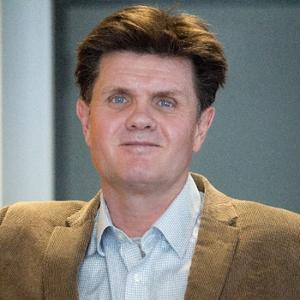
The war for talent
The skills crisis continues to bite the local tech sector with senior tech leaders anticipating that they will have difficulty in finding skill sets in the areas of big data (46.97 per cent), artificial intelligence and machine learning (43.94 per cent), and application development (25.76 per cent).
Further, 38.64 per cent of respondents felt that the federal government’s Global Talent Scheme would not make it easier for their organisations to hire talent from overseas. Fifty-nine per cent were not sure and only 2.27 per cent indicated that the new rules would make it easier. Surprisingly, three quarters of respondents said they didn’t have a tech graduate program in place at their organisations.

The University of Newcastle’s Molinia believes the government has conflicting positions on promoting bringing in talent from overseas but has put in place restrictions on visas.
He says it’s quite difficult to source global talent directly so he focuses more on capabilities rather than technologies – for example, engaging people who understand intellectual property and customer needs.
“I buy the capabilities by partnering with large organisations that have an international footprint. I think the reality is that this is where it will go – if it’s not already going that way – where there are strategic partnerships and alliances between organisations because the talent pool is so thin,” he says.
The University of Tasmania’s Murray agrees that the skills crisis is real and like Molinia, he emphasises the capabilities more so than abilities of staff.
“Therefore people are building skills on the job – that’s given us the agility to get done what we have to get done,” Murray says.
The university’s approach has been to engage external providers for its projects. Like other education providers, all of the university’s digital transformation resources are sourced externally from across the state and also mainland Australia.
“The beauty of that is that it protects my internal resources from the heavy load of this transformation, which is huge. It also enabled us to expand our resources by bringing in the skills we need.”
Meanwhile, the university’s UHack innovation hackathon competition, run by students and staff is helping foster people with the right skills. The university has built an extensive database that includes information about 90 developers, gathered from hackathons in recent years.
“We know how they code, what they’ve coded and what their ideas are. They are in the areas of AI, blockchain, machine learning and analytics. It’s a fantastic way to unearth the next-generation of skills. So running hackathons, innovation and entrepreneurial events doesn’t just help grow your economy, it helps grow your talent pool,” he says.

Toyota Financial Services’ Neumann says she has been lucky to attract tech talent due to the popularity of the company’s brand.
‘It [Toyota] is the fifth largest company worldwide and people are actually quite keen on having that on their CV,” she says. “Financial services is one of those industries that people want to get into because within IT, it is one of the more sophisticated and better paying industries so that’s a drawcard.
“I can bring in permanent and contract [staff] and consultants. I have a lot of freedom of movement in that space at the moment. We are in the midst of a whole range of transformation programs at the moment and we are moving fast but when we start more with long-term planning, I can see that this will bite me a bit.”
The Fred Hollows Foundation’s Leeuwen expects that his organisation will have trouble finding data scientists in particular as the best talent is ‘hoovered up’ by organisations with more money to spend.
“That’s a problem we face across the board as a charity – we have a certain amount of difficulty attracting talent. We don’t pay top dollar but we make up for it with people’s enthusiasm.”
CEO’s priorities, technology focus
Survey respondents were asked what their CEO’s priorities were for them in the coming year when 71 per cent were being asked the lead digital business initiatives. Not surprisingly, 44 per cent of tech bosses were being asked to upgrade IT and data security to avoid a cyber security attack. This was followed by simplifying IT (40 per cent).

Meanwhile, almost half (47 per cent) of respondents will make investments in cloud computing over the next year, closely followed by security/risk management (46 per cent) and application modernisation (42 per cent).

Other findings
Tech execs were also asked how long they have been in their roles. It is believed that CIO tenures in Australia are getting shorter. Almost one quarter (24 per cent) of respondents had been in their roles for less than one year; 26 per cent between one and two years, and 16 per cent between three and four years.

What is particularly heartening is that 66 per cent of IT leaders responding to the survey felt that they were viewed as strategic advisors to their businesses. A further 24 per cent were viewed as ‘consultants’, 7 per cent as ‘risk assessors’, 2 per cent as ‘road blocks’ and sadly, 1 per cent were viewed as ‘rogue players.’
Finally, tech execs are playing a key role in their organisation’s digital transformation activities. Two-thirds (35 per cent) of respondents are helping identify which parts of the business could be digitally transformed through the use of digital technologies. One quarter of respondents are also identifying emerging technologies that could accelerate digital transformation, and 24 per cent are integrating digital innovations to the enterprise business systems.
The full State of the CIO report will be available soon.
Follow CIO Australia on Twitter and Like us on Facebook… Twitter: @CIO_Australia, Facebook: CIO Australia, or take part in the CIO conversation on LinkedIn: CIO Australia
Follow Byron Connolly on Twitter: @ByronConnolly
Join the CIO Australia group on LinkedIn. The group is open to CIOs, IT Directors, COOs, CTOs and senior IT managers.
